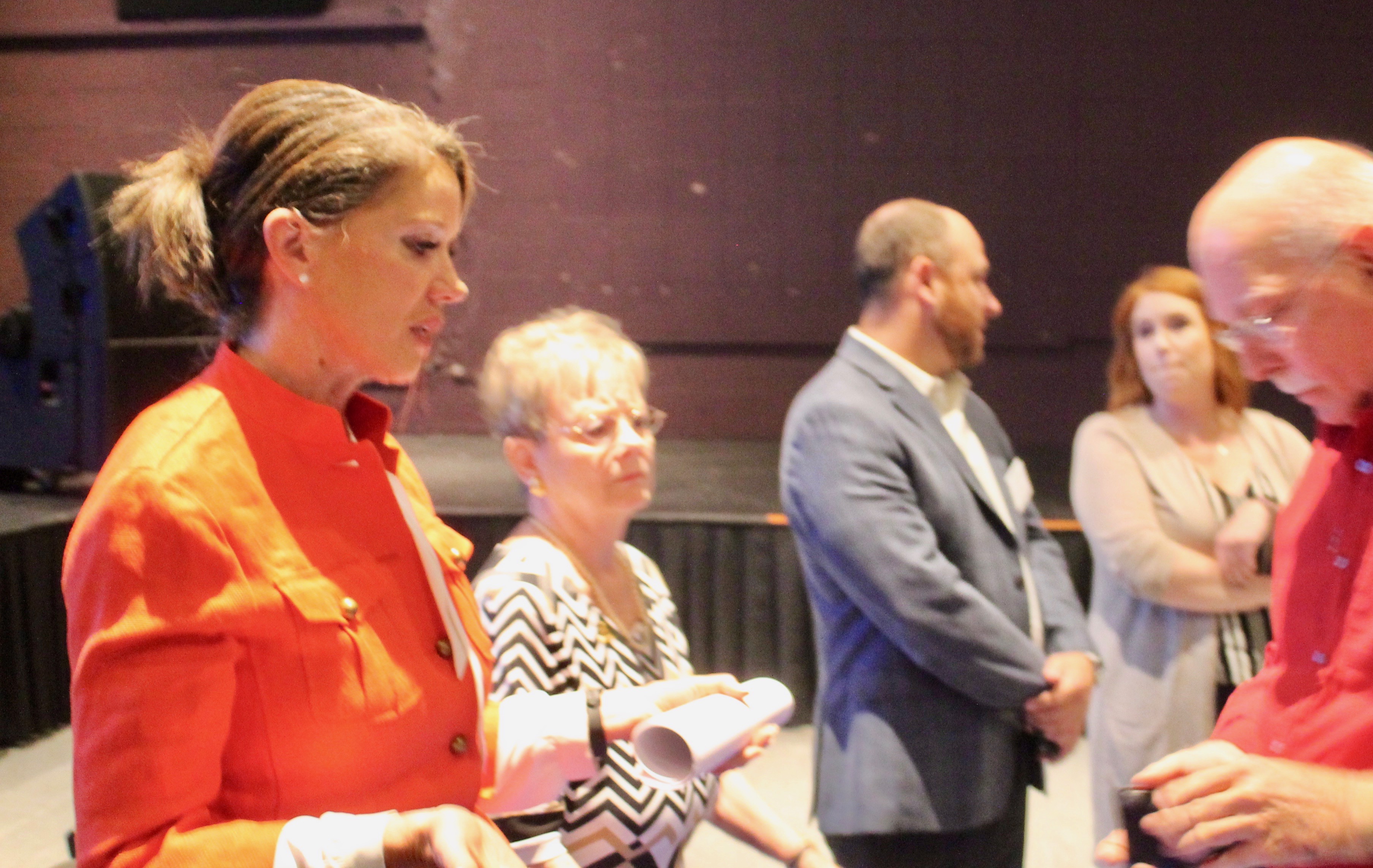
LAKEPORT — At a tourism-focused community meeting at the Soper Reese Theatre in downtown Lakeport Wednesday, local leaders in government, agriculture, arts and business converged around a presentation by Visit California CEO Caroline Beteta, whose far-reaching and well-funded $126 million nonprofit organization promotes tourism to California worldwide. Beteta’s message to Lake County was positive despite the county’s recognized financial difficulties.
Beteta stressed, and others would echo her sentiments throughout the meeting, that if Lake County is to begin growing its tourism industry, it is in need of serious rebranding. Beteta advocated a message that she summed up as “Lake County is open for business.”
Beteta described tourism as a “traded commodity” that is “very important in stimulating incremental economic activity by bringing outside dollars.” Beteta stressed the importance of tourism in California as a whole, and suggested that Lake County would see increased tourism dollars as the industry grew across the state. She noted that statewide, tourism brings in roughly $11 billion dollars annually, which she said would be enough to “fund Cal Fire and CHP, combined.”
Beteta did not offer specific data regarding what portion of that revenue comes from Lake County.
A panel consisting of Beteta, District 1 Supervisor Moke Simon, community leader Wilda Shock and Lake County Wine Association Executive Director Helena Welsh, further discussed tourism in Lake County. Responding to a question from Deputy Administrative Officer Michelle Scully, Supervisor Simon said that Lake County suffers from negative perceptions by the outside world. According to Simon, Lake County residents get comments from outsiders that “you guys are the ones that burned up.” The sense of crisis carried with comments like these, Simon said, does not encourage potential visitors to come to Lake County.


Welsh said that “we need to change our mindset” regarding Lake County in order to project a more tourism-friendly public image. Clearlake City Manage Greg Folsom said that it is important to reinforce positive perceptions of Lake County, while deemphasizing the negatives.
Beteta added that negative “media hype” surrounding the fires that Lake County (and all of California) has dealt with in the last few years pushes tourists away, without good reason. “You don’t need the time and space to mourn the crisis. You need the business now,” Beteta said. Beteta believes it would be beneficial to move into higher levels of business and tourism promotion sooner, after fire containment levels reach a threshold of safety. “Right when containment of fires is high, we need to pivot right into business promotion and tourism.”
The four panelists as well as attendees of the meeting noted the success Lake County has had with its agriculture industry in recent decades, and hoped to use that to attract visitors. Simon noted that unlike Napa County, Lake County has a significant amount of food agriculture, which may help distinguish it from its neighbor.
Visit California has in the past year been using Lake County’s growing wine industry to promote tourism. In a presentation, Beteta noted that Visit California had created 11 online “contact pieces” promoting Lake County in the past year, and that there had been 157,000 page views on that content. Visit California, according to Beteta, had also made 44 Lake County-related social media posts and had featured Lake County wineries as part of its “media toolkit.”
When asked why the cannabis industry had been left out of the conversation on promoting business, Supervisor Simon said that the industry has not been profitable for the county yet, as it is still in its infancy. Comments made by District 5 Supervisor Rob Brown at a recent Board of Supervisors meeting paralleled Simon’s comments, yet while Brown argued that the cannabis industry is “uncompetitive” in Lake County and that he does not see it benefitting Lake County within the next decade, Simon said that he believed the industry could begin to grow significantly if federal laws regarding marijuana became more relaxed. “We experienced this with the gaming industry,” Simon said, going on to describe how the restrictions on cannabis growers to use federally licensed banks are holding back growth.
Simon requested of Beteta that Visit California spend more energy promoting Lake County, arguing that the county has much of the same attraction to visitors that Lake Tahoe does in Nevada County. Simon asked to see an entire Visit California commercial dedicated to Lake County—beyond the social media and website posts the organization has already been making.
One county-based effort to attract tourism revenue has been put on hold in recent weeks: this is the proposed Tourism Improvement District, which because it requires the willful partnership of a majority of hotel owners, recent hesitation on the part of some owners has left the TID at a standstill. Scully said that the TID would “provide money to be used for destination marketing, to get more tourists in.” Scully added that would “allow the lodging industry to speak with a cohesive voice,” as a TID board populated largely by industry professionals would be formed to govern the district.
According to Scully, hoteliers have expressed concern that the cost of forming a TID, which would be shouldered by the hotel owners themselves, could add difficulty in conducting business. Countering this, Scully emphasized that the value of having a board and the potential for tourism increases would outweigh this cost.
In her presentation, Beteta cited an Oxford study which she said had found that “destinations that proactively invest in tourism marketing as well as infrastructure outperform their peers in not only attracting visitors, but also attracting and increasing economic activity within their regions.”





